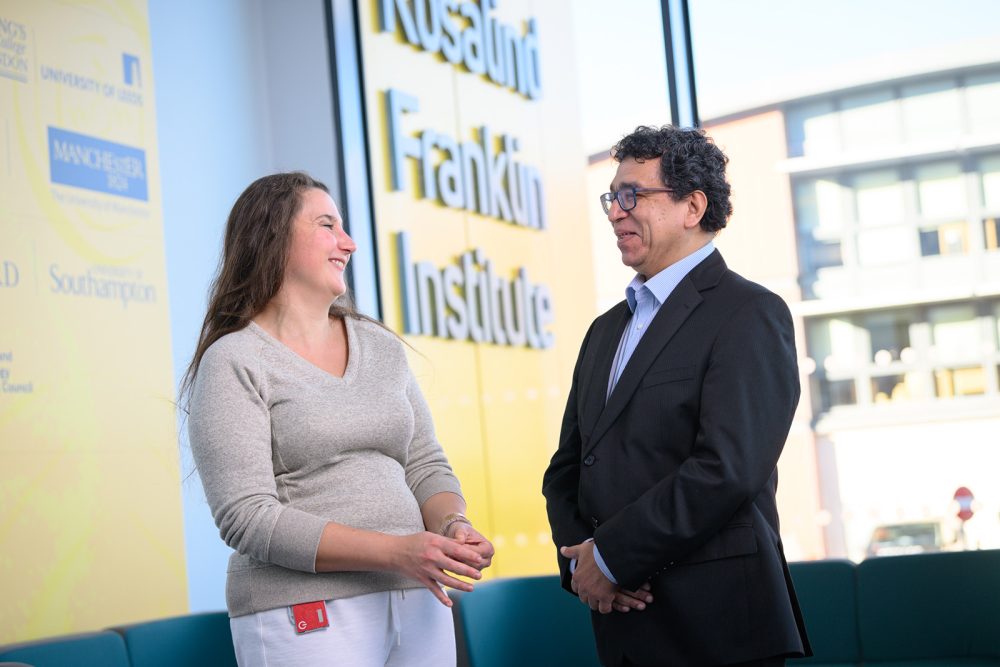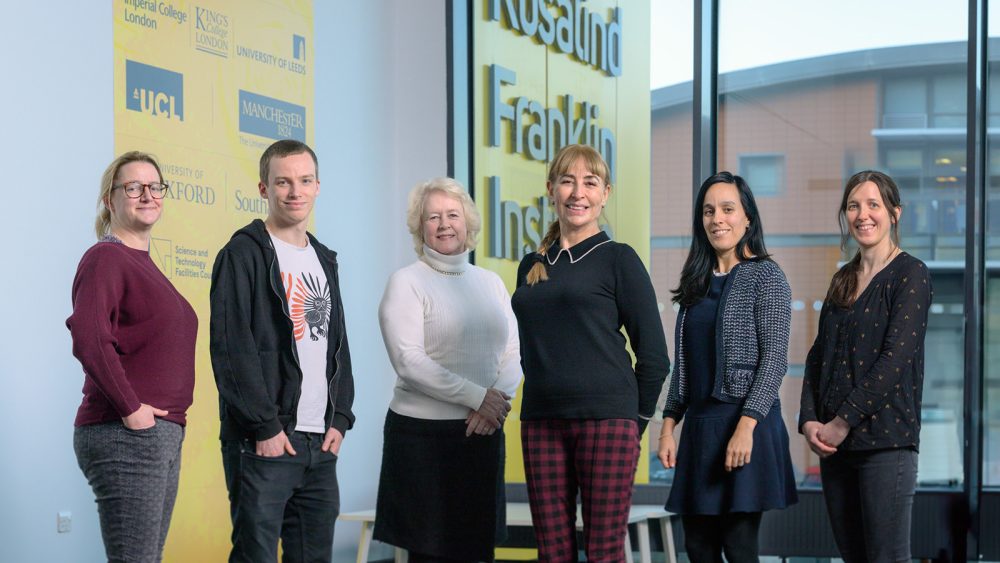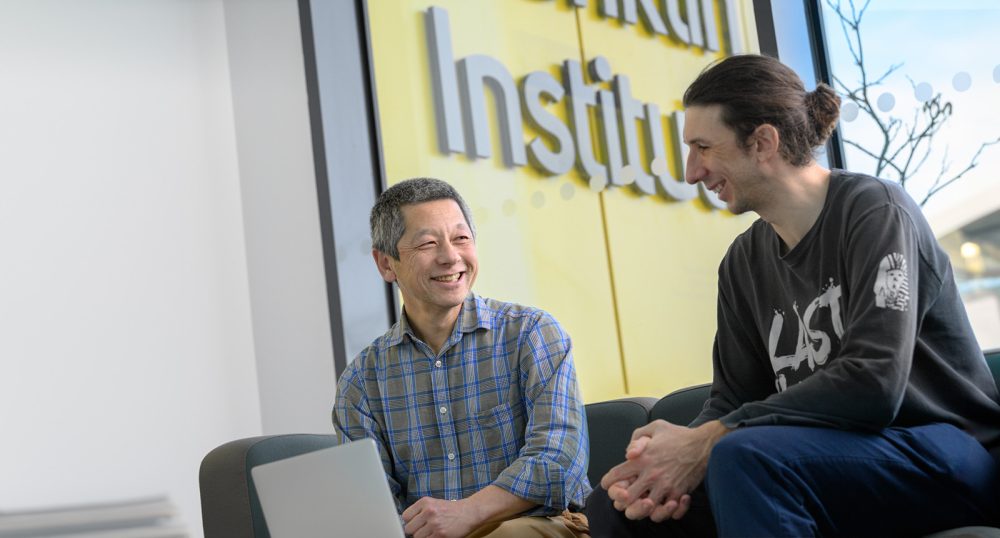Winners of £50K Franklin research residencies announced
Three of the UK’s brightest life science companies have been awarded research prizes by the Rosalind Franklin Institute in collaboration with the Science and Technology Facilities Council (STFC), a part of UKRI. These research prizes will enable the winners to benefit from the Franklin’s top-level technologies and support to move their work forward.
Winning biotech companies Neuro-Bio, Oxford Target Therapeutics and Hypha Discovery will each spend a residency of 12 weeks at the Rosalind Franklin Institute, allowing them to investigate, respectively, a potential early diagnostic test for Alzheimer’s disease, a promising therapy for Triple Negative Breast Cancer, and new technologies for determining the chemical structures of small drug metabolites.
Oxford Target Therapeutics plans to use the Franklin’s serial focused ion beam scanning electron microscopy to find out for the first time exactly how its treatment acts on a micromolecular level on both breast cancer cells and healthy cells. Victor Bolanos-Garcia, Founder and Chief Scientific Officer, said: “Without this opportunity, we wouldn’t be able to fund the cost of this work ourselves as we have too many competing priorities. But it is instrumental for us, so the Franklin’s offer of funding and expertise will really fill a vital gap.” The results of the research will help the company plan more effective strategies to treat Triple Negative Breast Cancer, one of the most aggressive and deadly forms of the disease.


Neuro-Bio aims to measure how a peptide biomarker that may indicate pre-symptomatic Alzheimer’s Disease can be accurately detected from saliva samples. The company will use the Franklin’s liquid chromatography-mass spectrometry (LC-MS) technology to analyse the biomarker, known as T-14. The project will allow them to see how the amounts of the peptide biomarker in saliva correspond to the different stages of the disease, by analysing hundreds of samples donated by patients living with Alzheimer’s. Sara Garcia Rates, Chief Scientific Officer of Neuro-Bio, said: “We’ve previously done a very limited pilot study in-house, but this work with the Franklin will allow us to validate the test, greatly increase our throughput and enable the quantification of T14. This transformational step will enable us to progress from a very lab-based project into something that doctors will be able to access, very much faster than we’d have been able to do otherwise.”
Professor Ben Davis, Interim Director of the Rosalind Franklin Institute, said: “The Franklin is tasked with creating advances which push forward life science. The creative challenges posed by these SMEs are a great testbed for our technologies – this creates a golden opportunity to explore new areas together and so provide the companies with the leaps in results they need to take their products to the next stage.”

